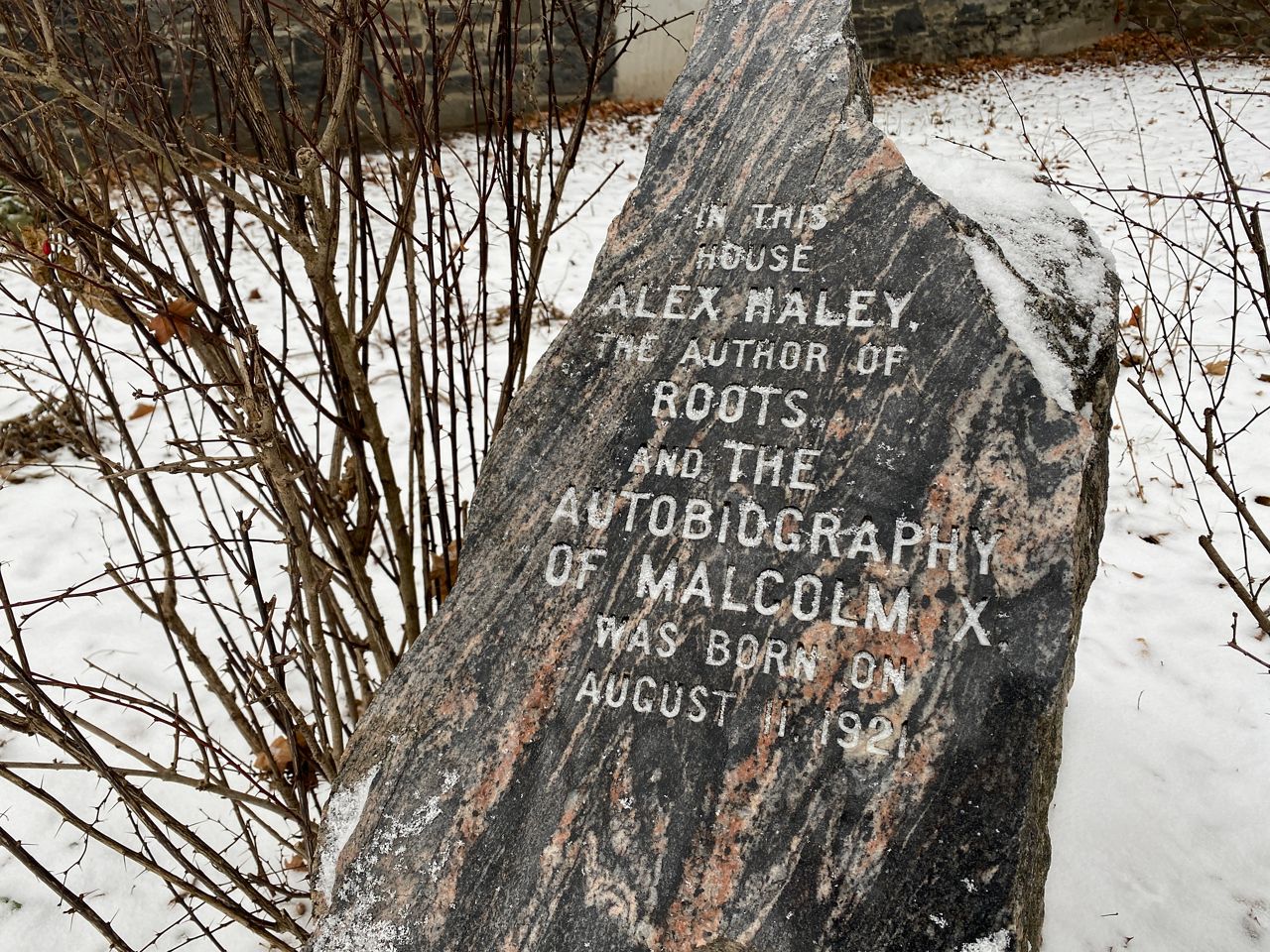Alex Haley wrote the well-known book “Roots” in 1976. Years before that, he got his start in Ithaca on 212 Cascadilla Street on August 11, 1921.
Next door to his first home is a pocket park, honoring his life.

“Community member made leaves with him [a blacksmith], like, he guided people. And if you look you can see here’s A.H. for Alex Haley [on a commemorative bench]. And if you look underneath, you can see that [the bench] has roots,” said Sandy List, with the Alex Haley Memorial Project. “He only lived here for six weeks, and then they went home to Henning, which is the town that’s really the most associated with him in Tennessee, and that’s where he grew up.”

“So while it may seem somewhat insignificant that when the kid was an infant, he didn’t live here very long; he didn’t teach at Cornell, didn’t attend Ithaca College; but this is where life began,” said Cal Walker, with the Alex Haley Memorial Project.
A historic blue New York history sign was only just placed outside of the house last year around his birthday, which would have been his 99th.
“We’re literally in this one-square-block area; we’ve got the house where Alex Haley was born, the house that is connected to the founding of the nation’s oldest and first Black fraternity, and a historical African American church,” said Walker. “This is incredibly significant, because Black sororities and fraternities have produced some of the greatest leaders, really, in America today.”

Also around the corner is the Alex Haley pool, which includes a mural depicting the books he wrote. Walker understands February will always be a month of recognizing Black history, but he says it should be something that really happens all year.
“Normalizing by more fully integrating history into the norm ... it now becomes part of the fabric of America, as it always should have been,” said Walker.





